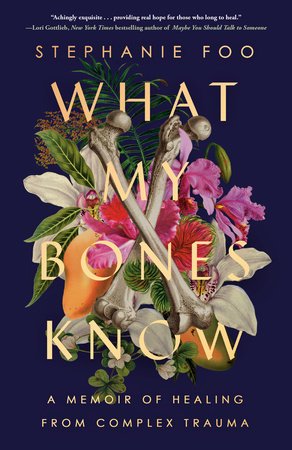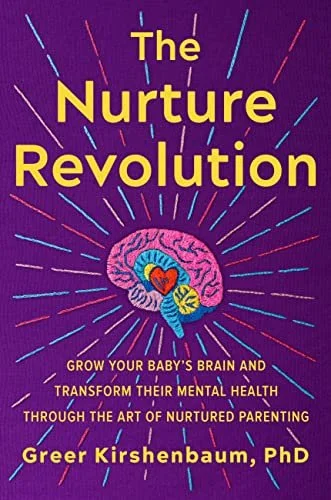From the Bookshelf of a Play Therapist and New Mom
As a therapist who has worked with children and families since my undergrad days, I was PREPARED for motherhood. Or so I thought. But, as most other parents can resonate with, parenthood is much more difficult than any outsider can imagine, and it didn’t take me long to figure this out. Once I did figure out how hard it was, I began reading both for information and entertainment. And quite honestly, as a coping skill.
My son spent many (most) naps in my arms and reading was a way to ward off sleep as I held him in a room that is perfectly optimized for sleep. Once my son got big enough that I needed two arms to hold him, I switched from reading to listening. In my son’s first 16 months, I read… mostly listened to… 40 completed books and a handful of other books I just didn’t finish for various reasons.
Below are the most influential books to me as a new parent and a therapist. I read many fictional books that I’m not including in this list but I do want to acknowledge my need for levity, especially during the first 12 months which, for me, were very hard.
When I was in grad school, my late, great Professor Sudolsky recommended two or three books each class period, all of which were profound but usually quite dense reads. When we asked how on earth we could read all the difficult material he recommended, he always answered that alternating these books would expand our understanding of racism and social justice, mental illness and health, and the experience of others with fiction was the way he balanced it. I was particularly grateful for that advice during my son’s first year of life.
The Happiest Baby on the Block
This book was hugely helpful in acknowledging that my baby’s intensive needs were biological and what he needed was me. In it I learned about the 5 Ss: swaddle, shushing, swinging, side laying, sucking, which was a helpful reference for me in those early days.
The most important thing to me as a mom of a boy who will become a very privileged man, is making sure he knows whose shoulders he is standing on (strong women) and is always aware of the inequities he will live among… many hidden in plain sight. This book had lots of ideas for exposing boys to some of these inequities and encouraging critical thinking. I liked it and there are some resources for my son’s young age but I will also revisit it when he’s a bit older.
Written by an economist who also wrote Dream Hoarders, which I also highly respect, he covers many areas in which men and boys could be more supported. I know, I know, right after reading How to Raise a Feminist Son? Is the irony not lost on me? He does a great job being explicit about men, especially white men, being the most privileged in our society AND that some systems, such as the education system, are geared towards girls' and women’s success and aptitudes which does leave a lot of room for the desired support of boys. My biggest takeaway from this was the evidence-supported educational decision to red-shirt or hold boys back by repeating pre-k to allow their brains to catch up to those of the girls an academic year below them.
This was a re-read for me and well worth it. This book is written by the former Surgeon General of California, Dr. Nadine Burke Harris, who incorporated adverse childhood experiences (ACEs), and their lasting impacts, into her medical practice. If you’re an Ensemble client, you’ll recognize these ACEs from your intake paperwork. Her work was revolutionary in assessing and treating ACEs outside of the mental health world.
My biggest takeaway from this book was just the lens through which our two cultures, the United States and Denmark, view the toddler years specifically. In the US, we talk about the “terrible twos” and “three-nagers” and just prepare ourselves for battle for those two or more years. The Danes look at the toddler years as “the boundary-pushing years” acknowledging that yes, toddlers are constantly asserting their autonomy and sometimes in inconvenient ways, but when we foster their curiosity and self-sufficiency we actually see less boundary-pushing because they are more confident in themselves and their abilities.
A Tina Payne Bryson and Dan Siegel hit! The authors of The Whole Brain Child discuss discipline in a validating-emotions and skills-building way. They offer scripts and scenarios with approachable neuroscientific evidence backing.
A woman’s journey through her healing from Complex Post Traumatic Stress Disorder (CPTSD). If you or a loved one had early and chronic relational trauma (think abusive or absent parents) this is a must-read — but also very heavy. This isn’t a parenting book, rather it is a book for parents with relational trauma from the way they were parented, and could be a helpful piece of breaking the generational trauma cycle.
Written by Megan Trainor! Serious and light—all in one read. All pregnant people should read this book!
A reporter/struggling mom of a three-year-old decides to research three indigenous communities around the world to learn how they raise such successful kids. Since she doesn’t have any child development or mental health background, I like how her parenting evolves and think it would probably be a really approachable book for people who don’t have a therapist’s background. Though I don’t love all the suggestions in the book, one of the communities she follows is known for raising helpful kids and I’ve got to say, I think I have the most helpful toddler in Austin after reading that chapter. I learned to foster his noticing of things that are out of place, ”Let’s put that back where it belongs!” or seeing dirt on the floor, “Let’s go get the broom and dustpan!” instead of dismissing his noticing or saying I’ll do it later which just sends the message that cleaning up and chores are for me and not for him. Which is of course more time-consuming now but he certainly won’t be shocked that I want his help with chores in a couple of years. It’s just how he exists in our family. And the way he beams with pride when he vacuums by himself, puts something in the trash all by himself, or takes the garbage bag all the way to the garage trash can is really a beautiful sight.
This book should be required reading for all new parents. It is attachment- and evidenced-based and infant-centered, which means there is no sugar coating about how intensely infants need. The author, and the research she cites, classifies infants as 0-3 years old. It also uses the most recent neuroscience to illuminate how important it is to meet their physical and emotional needs. I have always known how critical the first three years of development are. But, when my baby slept very poorly from day one I wanted so badly to shut off what I know about meeting needs and attachment overnight. Sleep train my baby and get. Some. Sleep. This book is so validating to those of us who know meeting needs doesn’t just turn off after dark. It also helped to remind me that my infant’s constant needs were normal, biological, evolutionary, and temporary…. If you consider three years temporary!
This is like trauma 101 for therapists. It. Is. Dense. And not for everyone but it was on my to-read shelf for a long time and I’m so glad I listened to it this time around because it is so helpful for my work.
I have started recommending this book to almost all of the parents with whom I work. I think Dr. Becky says all the things I would like to say in a muuuuuch more succinct and eloquent way. She is relational, attachment-, and evidenced-based and helps turn all the things we learned in grad school into parent-approachable and actionable advice and guidance. She provides lots of scripts for parents who need more of a concrete game plan. Her idea of looking at your child’s behavior with the “most generous interpretation” is game-changing.
Love love loved this book. My home is far from a Montessori home and I think the Montessori ways require a lot more patience than many parents in our culture have time (or even desire) for but I think the book can still be appreciated by parents who aren’t on the Montessori bandwagon because the book offers a lot of concrete ideas of relating to toddlers. My favorite tip is to wait 10 seconds! Toddlers’ minds just take longer to process. If they aren’t responding the way you want them to… count to ten in your head. Half the time they just need a bit longer to process your request! I’ve noticed this is equally effective with elementary-age kids as well.
I waited to read this until I had a little antiracist to raise. But honestly, I think anybody who works with children, specifically white professionals, should read it. Lots of good eye-opening examples of what nonwhite children and families experience and how to educate our white children to notice not only their own experiences but those experiences of others too.
How to Talk so Little Kids Will Listen
So many great resources for parenting children ages 2-7! I made my husband read it and it’s so fun watching him practice his new skills on our son! Side note, our son is currently under 2 and it’s still very effective. There are lots of concrete examples of language to use and perspective shifts to help get into the brains of our younger kids.
Even though I didn’t read these two books during my son’s naps, I’d be remiss not to give a shout-out to The Whole Brain Child and What Happened to You. The Whole Brain Child is a very foundational parenting book and What Happened to You is a powerful self-help book helping everyday people understand our experiences of trauma and the impact on our lives. It’s written by Oprah! And my professional idol, Bruce Perry!
Sometimes it can be hard to know where to begin looking for parenting resources so I hope my many, many, many hours in the dark with these wonderful books will be a sort of jumping-off point for you and your parenting journey. It’s not easy to do the reading and reflection while also getting dinner on the table, a bath occasionally, and being present with your kid(s) but hopefully, you’ll find inspiration to check out some of these books if you think they might benefit you and your family.
Interested in booking a session with us?
WRITTEN BY Colleen Turner, LCSW (She/Her/Hers)
Colleen Turner is a Licensed Clinical Social Worker (LCSW). Colleen received her Master of Science in Social Work degree from the University of Texas at Austin and her Bachelor of Science in Human Development and Family Studies from the University of Illinois at Urbana/Champaign. Colleen is currently working towards her Registered Play Therapist™ (RPT™) credential. Colleen has clinical experience working with children ages zero through elementary school and their families and has worked extensively with children impacted by the child welfare system. Colleen is a Trust Based Relational Intervention (TBRI) Educator trained by the Karyn Purvis Institute of Child Development at Texas Christian University. Colleen has clinical experience working with children and adolescents, two to 16 years old. Colleen takes a whole-family, attachment-based, and trauma-informed approach to therapy, acknowledging that the family system is the most salient in a child’s life and can also be the source of the most support and healing.

















